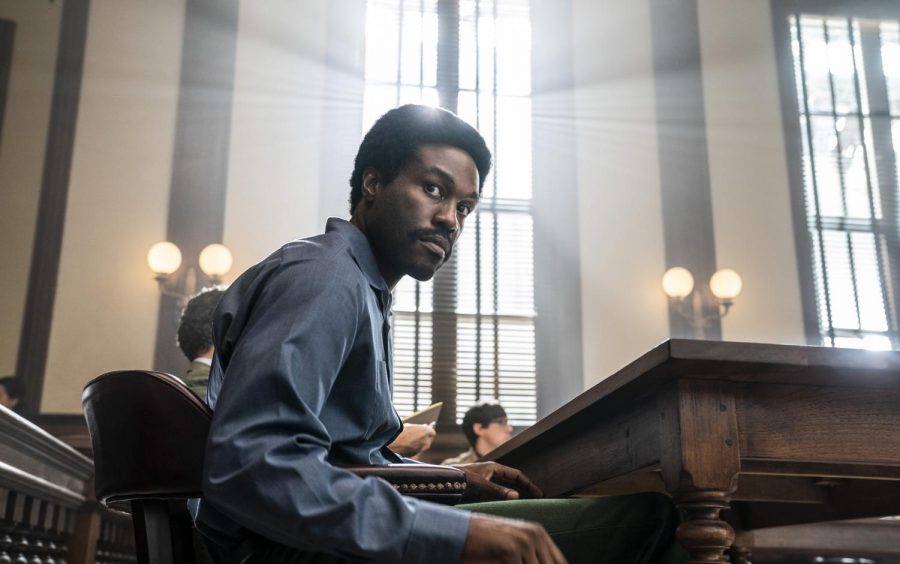REVIEW: ‘The Trial of the Chicago 7’ is a timely success
(Niko Tavernise/NETFLIX/TNS)
Yahya Abdul-Mateen II as Bobby Seale in Aaron Sorkin’s “The Trial of the Chicago 7” (2020). The film is nominated for Best Picture and five other awards.
There are few modern screenwriters who have made themselves a household name, and there are even fewer screenwriters who can come close to matching Aaron Sorkin in his distinctive grasp of dialogue. Sorkin is considered a legend among film critics and enthusiasts, having written some of the most brilliantly complex Hollywood films of recent times including Charlie Wilson’s “War,” “The Social Network,” and “Moneyball.” Recently, Sorkin has been able to try his hand in directing; his directorial debut was “Molly’s Game” from 2017, and it managed to garner positive reception even as it didn’t light the box office on fire. And after three years, Netflix has presented Sorkin’s sophomore effort, “The Trial of the Chicago 7″—a crowd-pleasing legal drama that successfully draws parallels to issues plaguing America to this day.
“Chicago 7” captures a moment in the late 60s when many Americans were being drafted to fight in the Vietnam War, in which seven men who organized a peaceful protest in Chicago were charged with inciting violence—that is, they were accused of organizing the protest with the intention of inciting violence. To share any more details would be to spoil the film’s events—viewers who don’t know much about the real-life story would benefit greatly from going in blind.
The film possesses a fantastic ensemble of actors. Eddie Redmayne, Mark Rylance, Sacha Baron Cohen, Jeremy Strong, Yahya Abdul-Mateen II, Frank Langella, John Lee Hancock and Joseph Gordon-Levitt, among others, all give fantastic performances as the historical figures they represent. There’s not a weak performance in the entire lineup. This was crucial for the film’s success—because the story had a profound effect on many lives, it makes sense to allow the viewer to connect with as many of the subjects as possible.
Which brings me to the strong writing and directing by Aaron Sorkin, who seems to be truly coming into his own here. He takes a seemingly unmanageable amount of storylines and blends them together in a way that resolves all of them—which is very tough for a filmmaker to pull off. Furthermore, Sorkin has a knack for capturing an image in a way that focuses on expanding upon one character’s story while simultaneously continuing the stories of the other characters. If one character says something, the film’s edit will ensure that many characters are reacting to what is said, and if something is happening to a character, then the edit will show their reactions to the event. The audience is treated to the wider scope of the story rather than just a singular narrative told through a singular protagonist which results in a seamlessly executed film.
The film, of course, is also relevant to events that are happening in the present day. Protests are happening all over the country, and controversies are springing forth regarding whether the protests are peaceful or violent in their nature. “Chicago 7,” a script that had been on Sorkin’s backburner for over a decade, seems to have found the perfect time to unearth itself—a time when many American protesters are being indicted as violent criminals in an unjust manner.
The “Trial of the Chicago 7” is worth your time. It is likely that it’s the one film to be released all year that’s the most relevant to America’s current condition. It is a nuanced, impartial, and truthful telling of one of America’s most important legal cases—with great performances and strong execution to boot. And that’s the final verdict!









